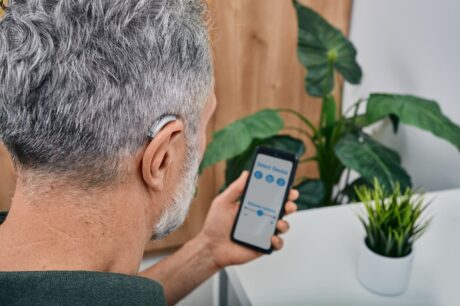Central Auditory Processing Disorder (CAPD) significantly impacts children, affecting their ability to process auditory information and often leading to emotional distress. This disorder doesn’t manifest through hearing loss but rather through difficulties in processing and interpreting sounds, which can impact how the child learns and develops as they grow.
Parents unfamiliar with CAPD in children often face a mix of worry and frustration, feeling overwhelmed by the challenge of addressing a disorder that’s invisible yet profoundly impacts daily communication and learning. In this guide, we will explore what effective strategies and resources we can use to mitigate the effects of CAPD on our child’s development and well-being.
How Does CAPD Manifest in Children?
Some of the common signs and symptoms of CAPD may include:
- Difficulty following spoken instructions
- Challenges in distinguishing between similar sounds
- Problems with focusing on a speaker in noisy environments
- Frequent requests for repetition
- Being easily distracted or inattentive
- Struggling to multitask or take notes while listening
- Difficulty reading, spelling or comprehending
To discern if your child might have CAPD, ask yourself some of these questions:
- Does my child often mishear what words and sounds are being said?
- Is the noise in my environment overwhelming or distracting my child?
- Are verbal instructions too complicated for my child?
- Is my child showing any reading, spelling, or speech-language delays?
How To Test For CAPD in Your Children?
Standard hearing tests may not detect CAPD since it’s a processing issue within the brain, not a hearing impairment. An auditory processing evaluation will form a better diagnosis, involving tasks to assess how well the child can listen in various conditions, such as background noise, and comprehend speech. These tests are detailed, typically lasting 2-3 hours, and suited for children aged seven or above due to the complexity and the need for the child’s active cooperation.
Finding Suitable Solutions and Therapies For CAPD
Treatment and Therapy

Speech therapy sessions can significantly benefit children with CAPD, focusing on improving their ability to process auditory information. Speech therapy often involves tailored exercises designed to improve the child’s ability to process and understand auditory information.
This might include practising listening in noisy environments, distinguishing between similar sounds, and enhancing the ability to follow spoken directions. The therapy is customised to each child’s needs and focuses on strengthening the neural pathways associated with auditory processing to facilitate better comprehension and communication.
Physical Accommodations
Creating a CAPD-friendly environment can enhance your child’s listening environment, enabling them to better focus on and process auditory information.
- Reducing background noise to ensure a quiet environment for them to focus sounds on.
- Make eye contact when talking to your child. That way, your child will be able to discern gaps in information when spoken to. It will also help to have them repeat information back to you. That way, you can ensure that they understand the conversation.
- Turning on closed captions or subtitles when watching videos with them.
- Speak to your child with fewer words at a time and with fewer steps so that they remember it better.
Hearing Aids
When selecting hearing aids for your child with CAPD, features that enhance speech understanding, minimise background noise, and support directional hearing are crucial:
- Phonak: Phonak hearing aids offer features like AutoSense OS, which automatically adjusts settings based on the listening environment, and Speech in Noise, which helps to make conversations easier to understand in loud settings.
- Widex: Widex hearing aids are known for their Sound Class Technology, which adapts to different listening environments, and the Unique platform, which provides clear and natural sound across a wide range of listening situations.
- Signia: Signia hearing aids offer features like SpeechMaster, which enhances speech understanding in various environments by reducing background noise and focusing on the speaker.
Navigating Central Auditory Processing Disorder with Your Child
Understanding CAPD and finding the right combination of treatments and accommodations can significantly improve the quality of life for children affected. The Listening Lab Singapore offers comprehensive assessments and consultations to tailor solutions to your child’s needs.
If your child uses hearing aids, remember the importance of regular maintenance, including fine-tuning and battery changes, to ensure optimal performance. Schedule a CAPD assessment or consultation at The Listening Lab today to get started on listening rehabilitation and explore how you can support your child’s auditory processing needs.








